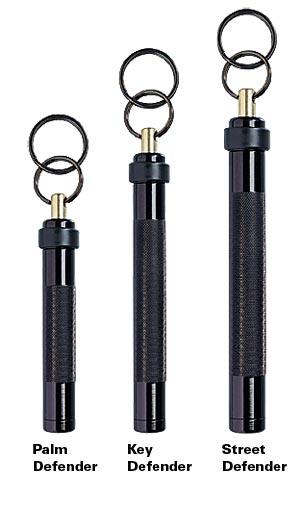Table of Contents
- Concealed Pepper Spray Regulations Across Different States
- Key Restrictions and Legal Considerations for Carrying Pepper Spray
- Tips for Safely and Legally Using Concealed Pepper Spray
- How to Stay Updated on Changing Concealed Pepper Spray Laws
- Key Takeaways
Concealed Pepper Spray Regulations Across Different States
When it comes to carrying pepper spray, regulations vary significantly from one state to another, making it crucial for residents and travelers alike to familiarize themselves with local laws. In some states, pepper spray is widely permitted for self-defense purposes without the need for a permit, while others impose restrictions on the maximum size or formulation. For example, states like California allow pepper spray with a container size that does not exceed 2.5 ounces, and the spray must not contain more than 10% concentration of oleoresin capsicum. Conversely, states such as Massachusetts require individuals to obtain a license before possessing pepper spray, reflecting a more stringent approach to concealment and carry.
Key factors that differ among states include:
- Age restrictions: Some states mandate a minimum age to legally carry pepper spray, often set at 18 years.
- Permit requirements: A handful of states require a background check or permit before ownership or concealed carry is permitted.
- Spray concentration and size limits: Regulations often specify allowable spray potency and container size.
- Restricted use areas: Specific locations such as schools, government buildings, or airports may prohibit possession altogether.
Key Restrictions and Legal Considerations for Carrying Pepper Spray
When considering carrying pepper spray, it’s crucial to understand that each state imposes distinct regulations governing its possession and use. Restrictions often include age requirements, limitations on spray concentration, permissible container sizes, and even approved delivery methods. For instance, some jurisdictions may require individuals to be 18 years or older, while others permit younger users under specific circumstances. Additionally, carrying pepper spray openly versus concealed can be treated differently under the law, so knowing whether your state permits concealed carry without a permit is essential.
Beyond possession rules, there are legal ramifications tied to the deployment of pepper spray. It’s generally legal to use pepper spray strictly for self-defense, but misuse-such as using it aggressively or in prohibited areas like schools, government buildings, or certain public events-can invite criminal charges. Key considerations include:
- State-specific restrictions on where and how pepper spray can be carried or sold.
- Prohibited categories of individuals, such as felons or those with restraining orders, from possessing pepper spray.
- Mandatory registration or permit requirements in select states.
- The importance of understanding self-defense laws relative to non-lethal weapons.
Tips for Safely and Legally Using Concealed Pepper Spray
When carrying concealed pepper spray, prioritize responsible use by understanding your local regulations and practicing safe handling. Always store your spray in an easily accessible yet secure place, such as a dedicated pocket or purse compartment, to avoid accidental discharge. Before carrying, check if your state has restrictions on spray size, concentration, or required permits. Using your spray strictly for self-defense, and not as a tool for intimidation, keeps you within legal boundaries and promotes public safety.
Additionally, regular maintenance and familiarization can make a significant difference during emergencies. Consider the following best practices:
- Keep the spray clean and check the expiration date to ensure effectiveness.
- Practice deploying with an inert trainer canister to build confidence without risk.
- Avoid spraying in confined spaces or around windy conditions to prevent self-contamination.
- Know the aftermath-once used, move away quickly and contact authorities if necessary.
How to Stay Updated on Changing Concealed Pepper Spray Laws
Staying informed about the latest changes in concealed pepper spray laws requires a proactive approach. Start by regularly visiting the official state government websites and reviewing their public safety or legal sections, where updates on weapon regulations are published. Subscribing to newsletters from reputable legal organizations or self-defense advocacy groups can provide timely alerts directly to your inbox. Additionally, following local law enforcement agencies on social media platforms can offer immediate updates and clarifications on any new legislation or enforcement policies.
Another effective strategy is to join forums or online communities dedicated to self-defense and personal safety. These platforms often share firsthand experiences and discuss recent legal developments, making it easier to understand the practical implications of changing laws. Make use of legal databases that allow you to set custom alerts on concealed carry regulations, ensuring you never miss critical updates. Ultimately, a combination of official sources, trusted news outlets, and community feedback will keep you well-informed about the evolving landscape of concealed pepper spray regulations.
Key Takeaways
Navigating the nuances of concealed pepper spray laws can be challenging, but understanding the regulations in your state is crucial for responsible and legal self-defense. Whether you’re a resident or just passing through, staying informed helps ensure you protect yourself without unintentionally breaking the law. Always remember to check for any recent updates or local ordinances that may affect possession or use. Empower yourself with knowledge, carry safely, and prioritize your security within the boundaries of the law. Stay informed, stay safe!Check Our Other Blogs
- StunGun – Your Trusted Source for Stun Guns, Laws, and Self-Defense Tips
- PepperSprayLaws – Your Trusted Resource for Pepper Spray Information
- StunGunLaws – Your Trusted Guide to Stun Gun Legality and Safety




